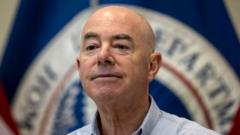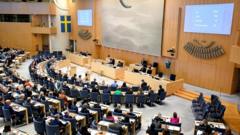By UNRWA Commissioner-General Philippe Lazzarini
GAZA / MIDDLE EAST – This is a time of seismic change in the Middle East. At the heart of this region, the United Nations Agency for Palestine Refugees – UNRWA – is a stabilizing force.
In Gaza, the Agency is the backbone of the humanitarian operation, coordinating and providing lifesaving assistance. Beyond Gaza, it has championed human development for Palestine Refugees for decades across the region.
Today, an insidious campaign to end UNRWA’s operations is underway, with serious implications for international peace and security. It is in this context that the Council is asked to consider the existential challenges confronting the Agency.
Six months of relentless bombardment and a merciless siege have transformed Gaza beyond recognition. Homes, schools, and hospitals have been reduced to rubble, under which countless bodies lie. Children are bearing the brunt of this war.
More than 17,000 are separated from their families, left to face the horror of Gaza alone. Children are killed, injured, and starved – deprived of any physical or psychological safety.
Across Gaza, a man-made famine is tightening its grip. In the north, infants and young children have begun to die of malnutrition and dehydration. Across the border, food and clean water wait. But UNRWA is denied permission to deliver this aid and save lives.
This outrage is occurring despite consecutive orders by the International Court of Justice to increase the flow of aid into Gaza – which can be done if there is sufficient political will. You have the power to make the difference.
UNRWA’s mandate is supported by an overwhelming majority of Member States. Yet, the Agency is under enormous strain. It is facing a campaign to push it out of the occupied Palestinian territory. In Gaza, the government of Israel seeks to end UNRWA’s activities.
The Agency’s requests to deliver aid to the north are repeatedly denied. Our staff are barred from coordination meetings between Israel and humanitarian actors.
Worse, UNRWA premises and staff have been targeted since the beginning of the war. 178 UNRWA personnel have been killed. More than 160 UNWRA premises, mostly used as shelters, have been damaged or destroyed, killing more than 400 people.
Premises vacated by the Agency have been used for military purposes, by Israeli forces, Hamas, and other Palestinian armed groups.
Our headquarters has been occupied militarily, and allegations have emerged concerning the existence of tunnels under our premises. UNRWA personnel detained by Israeli security forces have shared harrowing accounts of mistreatment and torture in detention. We demand an independent investigation and accountability for the blatant disregard for the protected status of humanitarian workers, operations, and facilities under international law.
To do otherwise would set a dangerous precedent and compromise humanitarian work around the world.
The situation in the occupied West Bank is also highly concerning. Daily attacks by Israeli settlers, military incursions, and the destruction of homes and civilian infrastructure are part of a well-oiled system of segregation and oppression.
UNRWA’s operational space is shrinking, with arbitrary measures imposed by Israel to restrict the presence and movement of staff. It is becoming increasingly difficult to keep our schools and health centers open and accessible.
Legislative and administrative actions to evict UNRWA from its headquarters in East Jerusalem and prohibit its activity on Israeli territory are also underway.
Amid these challenges, serious allegations against individual UNRWA personnel in Gaza emerged in January. Horrified by these allegations, I immediately terminated the appointments of those concerned.
The secretary-general ordered an investigation through the Office of Internal Oversight Services. In parallel, an Independent Review Group is assessing how UNRWA upholds neutrality – a core principle guiding our work.
Despite these prompt and decisive actions, a significant amount of donor funding remains suspended. This has serious operational implications and undermines the financial sustainability of the Agency.
Be assured that we remain firmly committed to implementing the recommendations of the review and to strengthening existing safeguards against neutrality breaches.
As I informed the General Assembly in March, calls for UNRWA’s closure are not about adherence to humanitarian principles. These calls are about ending the refugee status of millions of Palestinians.
They seek to change the long-standing political parameters for peace in the occupied Palestinian territory set by the resolutions of the General Assembly and this Council. Accusations that UNRWA deliberately perpetuates refugee status are false and dishonest.
The Agency exists because a political solution does not. It exists in lieu of a State that can deliver critical public services. The international community has long attempted to contain, rather than resolve, the Israel-Palestine conflict. Lip-service is paid to the two-state solution each time an escalation occurs, costing lives and hope.
UNRWA was created 75 years ago as a temporary agency. A stop-gap measure, pending a political answer to the question of Palestine. If the international community truly commits to a political solution, UNRWA can retrieve its temporary nature by supporting a time-bound transition, delivering education, primary healthcare, and social support.
It can do so until a Palestinian administration takes over these services, absorbing UNRWA’s Palestinian personnel as civil servants.
Dismantling UNRWA will have lasting repercussions.
In the short-term, it will deepen the humanitarian crisis in Gaza and accelerate the onset of famine. In the longer-term, it will jeopardize the transition from ceasefire to ‘day after’ by depriving a traumatized population of essential services.
It will make nearly impossible the formidable task of bringing half a million deeply distressed girls and boys back to learning.
Failing to deliver on education will condemn an entire generation to despair – fueling anger, resentment, and endless cycles of violence. A political solution cannot succeed in such a scenario.
Let me conclude with three appeals:
First, I call on Council Members to act in accordance with General Assembly Resolution 302 and safeguard UNRWA’s critical role both now and within the framework of a transition. UNRWA has long been a custodian of the rights of Palestine Refugees. It can only relinquish its central role of providing critical services and protecting human rights when a political solution is realized. Until then, the political support of Member States must be matched by funding.
Second, I urge you to commit to a genuine political process culminating in a solution that can bring peace to Palestinians and Israelis. This process must uphold Palestine Refugees’ rights and aspiration to a just and lasting political solution to their plight.
Third, we must acknowledge that a political process alone will not guarantee a sustainable peace.
The wounds that run deep in this region cannot be healed without cultivating empathy and rejecting the dehumanization that is rampant, whether in political rhetoric or in the misuse of new technologies in warfare.
We must refuse to choose between empathizing with either Palestinians or Israelis; or showing compassion for either Gazans or Israeli hostages and their families.
Instead, we must recognize – and reflect in our words and actions – that Palestinians and Israelis share a long and profound experience of grief and loss. That they are equally deserving of a peaceful and secure future.
I urge you to help realize this future through principled multilateral action and a genuine commitment to peace.
The post This is a time of seismic change in the Middle East appeared first on Caribbean News Global.

